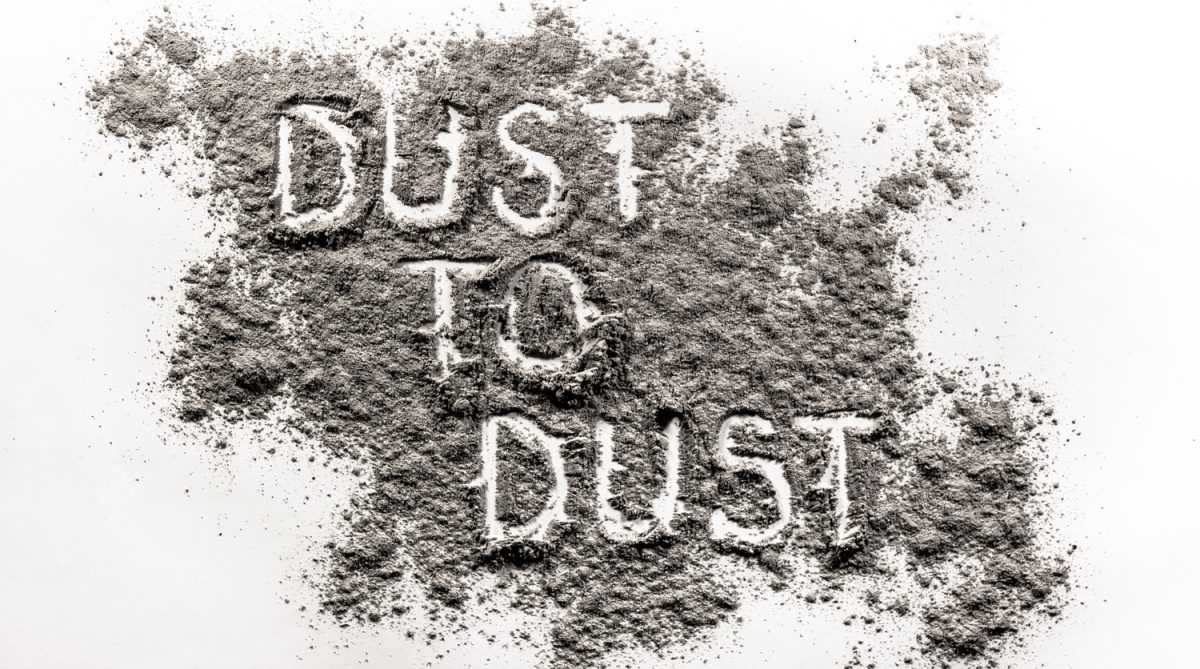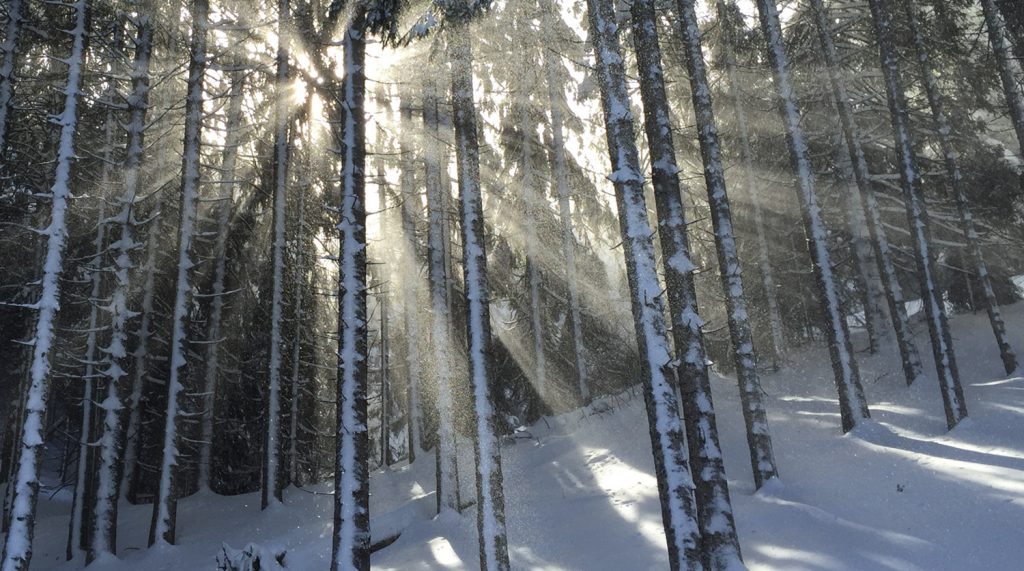
For dust you are and to dust you will return. (Genesis 3:19)
Modern heating is a wondrous thing. My appreciation for this basic necessity was renewed after a recent weekend alone in a prairie cabin without electricity, plumbing, or modern heating. The plan was to pray and write like a little desert hermit while maintaining a wood-stove fire to keep out our Alberta cold. Upon my arrival, that wood stove greeted me with its cold carpet of ashes all grey and black and snowy white – and no hint of glowing embers. I wondered about the person who had cultivated the previous fire and left these ashes behind. Obviously, they had figured out this quirky wood stove and survived. The stove’s fire box is very small so it took a fair amount of time to get the fire going on that first night, but after a few false starts, re-configurations, and many spent matches it eventually took. But what would happen when my fire died in the night while I was sleeping? My childhood house had a wood stove so I expected this venture to be easy, but somehow doing this on my own, in an unfamiliar place, and without any back-up made me uneasy.
With Ash Wednesday approaching, I’m again thinking about that original pile of ashes in the wood stove and the inevitably cold ashes that were there again the next morning. Dust to dust – that’s the cycle of any fire and it’s the cycle of our lives too. Near the beginning of Genesis, God curses Adam’s labour, saying,
By the sweat of your brow you will eat your food until you return to the ground, since from it you were taken; for dust you are and to dust you will return. (Gen. 3:19)
It’s a daunting statement, but we now face its central idea all the time when reminded continually of the fragility of our health, our government, and our livelihoods. My life is like that burning flame – all lively, vibrant, and energetic but sometimes harmful, gluttonous, and stubborn. And my flame is temporary. It’s fragile. It will return to dust one day.
The Humility of Ash Wednesday

Ash Wednesday invites us to join together and accept our shared vulnerability. We may be flames carefully tended by God, but we will diminish to dust eventually. From the humility of Ash Wednesday, Christians traditionally transition into the difficult season of Lent where we fast and seek God until descending even further to Good Friday, that most ashen of days in the church calendar. I never really look forward to the aridity of this season but this year feels more ashen than those past.
This year, we hardly need Ash Wednesday to remember that we are fragile and contingent. Our dreams have already grown dim as the economy struggles, health risks mount, and loved ones are reduced to touch screens. I have been surprised to find myself re-evaluating my career direction while wondering if all that was built over the last many years will be lost. It can feel like the fire was just getting going but now it risks being snuffed out altogether. I have had to resist the emptiness of despair like the Psalmist, who writes:
I am poured out like water, and all my bones are out of joint. My heart has turned to wax; it has melted within me. My mouth is dried up like a potsherd, and my tongue sticks to the roof of my mouth; You lay me in the dust of death. (Psalm 22:14-15)
A return to the dust can feel enticing sometimes.
Yet, while I sat in the cabin next to the troublesome wood stove, I remembered the many ways God has strengthened me and provided for me in this dried-up season. I read through the story of Jonah and marvelled at Jonah’s petulant complaint, “It would be better for me to die than to live” (Jonah 4:8) – his grumbling even after God has dramatically saved him again and again. While Jonah despairs, God has never lost sight of the mission at hand; God is still reaching out to the city of Nineveh and working to save its people. So I’m faced with two options, I suppose: will I continue to hopelessly anticipate “the dust of death” or will I see those ashes as the place where I grow bright and bring warmth to others?
A Signal of Hope

“For dust you are and to dust you will return” is my promised fate. But in accepting the cross marked in ash upon my brow I find painful humility, yes, but also a signal of hope. I am marked with the cross as one joining the inbreaking kingdom. I can acknowledge with the Psalmist that one day
All the rich of the earth will feast and worship; all who go down to the dust will kneel before Him – those who cannot keep themselves alive. (Psalm 22:29)
For on my own, this flame will falter, die, and be reduced to ash, but through the cross my life is not only defined by the dust. I can look to Easter Sunday where we declare that Jesus Christ has risen from the dust as the new Adam and the greater Jonah and He will sustain us forevermore.
There is a lot that seems grey and cold all around us. It can be difficult to see how any flame of hope could be rekindled in our lives. But I invite you to join me as we humble ourselves at Ash Wednesday and face the ashes all around us. I invite you to remember that even though we are humble and meagre, the God of the universe has the breath of life to sustain us. I invite you to let Him blow on the embers of your heart and trust that a new flame of hope can be resurrected there. That weekend with the woodstove was just a small step for me, but I’m trusting that He is still breathing on my flame and giving it life.
Written by Amy Lemke



